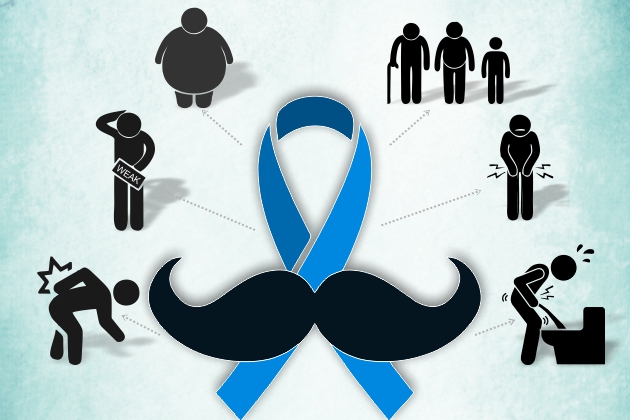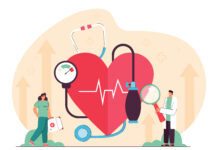Prostate cancer has become a massive threat to the lives of people around the world, causing great distress, psychological distress, and hardship for both those affected and their families. This is a condition that results from abnormal, uncontrolled cell renewal that prevents cells from functioning normally.
In this article, we’ll give you a brief overview of prostate cancer, the type of cancer that affects men, and how you can better manage it.
WHAT IS A PROSTATE?
The prostate is an “exocrine” gland and is part of the male reproductive system. It is located in front of the rectum, under the bladder. It is about the size of a walnut and changes with age, especially during puberty. The prostate secretes a milky, alkaline fluid that helps nourish and protect the sperm in the semen. It also contains muscle fibers that help regulate the flow of urine and expel semen during ejaculation. Thus, a diseased prostate can directly affect urination and sexual function in men.
WHAT IS PROSTATE CANCER?
It is the most common non-cutaneous malignancy in males, also known as ‘carcinoma’ of the prostate. Most prostate cancers are slow-growing. The cancer cells may metastasize from the prostate to other parts of the body like the lymph nodes, bones, and pelvic organs. A disease that occurs mainly in men over 50 years of age and the incidence of prostate cancer increases with the increase in life expectancy.
Types Of Prostate Cancer
There are several types of prostate cancer. The most common is the cancer of the gland cells also termed as ‘adenocarcinoma’. Sarcomas, small cell carcinomas, neuroendocrine tumors, and transitional cell carcinomas are the other rare types. Prostate cancer is classified into four stages i.e. Stage I, II, II, and IV, which helps to assess and recommend treatment options.
RISK FACTORS FOR PROSTATE CANCER:
The factors that trigger the development of prostate cancer are still not clear, although there are a few that have been identified to determine the risk. The three well-established risk factors are increased age, heredity/genetics, and race/ethnicity. Also, there have been some other uncertain factors like diet, lifestyle, obesity, hormones, etc. which may trigger prostate cancer.
SIGNS AND SYMPTOMS:
Normally, in the initial stages, the majority of the affected males are asymptomatic. In later stages, few symptoms may be observed which are often similar to the diseased condition called benign prostatic hyperplasia (BPH).
These include:
- Frequent urination at night
- An interrupted and weak urine stream
- Blood in the urine
- Pain and burning sensation during urination
- Erectile dysfunction
- Pain in the back, pelvis, chest, and hips
- Weight loss, weakness, loss of appetite
DIAGNOSIS:
Screening aids in the early detection of prostate cancer. This is done through a physical examination and analysis of serum prostate-specific antigen (PSA) levels. If abnormalities are present, additional tests such as imaging techniques, tumor biopsy, or endoscopic observation are recommended.
COPING WITH PROSTATE CANCER
Confronting a prostate cancer diagnosis can be challenging and affects a person physically and psychologically. Not only does the fight against diagnosis become a challenge, but the treatment and management of its side effects become important. Taking action early can help you better understand the condition and cope with the consequences of this chronic disease.
Family and friends: The most important thing to do when an individual is diagnosed with prostate cancer is to seek help from family and close friends. They can offer practical as well as emotional support which will aid to deal better with the challenges one is facing and ease the feelings of distress.
Individual counseling: By doing one-on-one counseling will help an individual to express his private or sensitive feelings about the illness and its impact on his life.
Supportive care: Other cancer survivors can be a very unique and useful support group. They have been through similar experiences and can provide an environment where one can learn new ways of dealing with the condition.
Sexual health: Prostate cancer diagnosis can affect the sex life of men in many ways; one such problem is erectile dysfunction. One can overcome this by considering hugging, touching, and caressing as ways to share sexuality with the partner.
Learn more about the condition
It can be hard to remember everything that a doctor tells about cancer. However, do not hesitate to ask questions to the doctor, nurse, or any health care provider about the condition or repeat any instructions or about medical terms. Ask about different types of treatment options available and their side effects. This will help to know what to expect or how to manage them.
Treatment strategies: There are many treatment options, so it is important to take the time to choose the right one. Remedy options for prostate cancer include surgery, radiation therapy, immunotherapy, chemotherapy, cryosurgery, and hormone therapy.
Take care of yourself: Take out time for yourself. Eat healthily and a balanced diet, do regular or moderate exercises and get enough sleep. This may help slow down prostate cancer growth or lower the risk of advanced illness.
Awareness is the only key to fighting this gender-biased clinical havoc!










